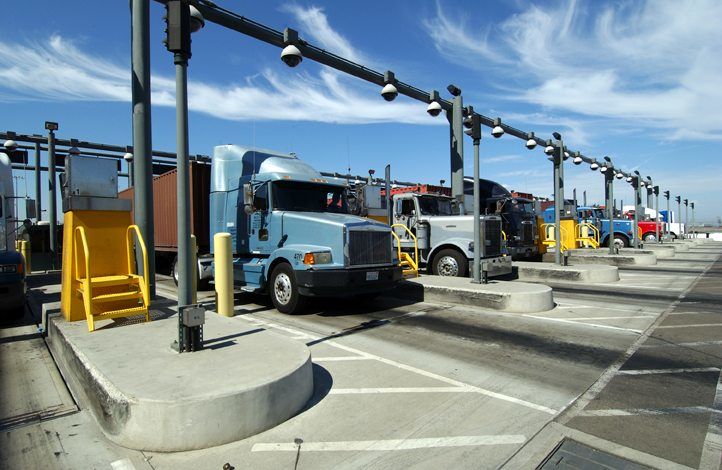

(This is the second in a three-part series about the misclassification of employees as independent contractors – a practice which affects millions of workers in the U.S., including most of the nation’s nearly 100,000 port truck drivers.)
Within the major trifecta of tactics used by today’s employers to slash the cost of labor and to maintain pre-New Deal levels of control over their workers, independent contractor misclassification is perhaps the most powerful and ubiquitous. (The others are the sub-contracting of essential functions and the use of temporary workers.)
Each of these ways of doing business damages the economy, suppresses wages for all workers and undermines popular and well-established laws designed to protect them. Yet independent contractor misclassification stands out in terms of its sheer boldness. When used as a shield against employer obligations by key industries (rather than a genuine administrative mistake by “Mom and Pop” shops) it’s a defiant avoidance of the hard-won,
» Read more about: Name Games: The Cost of Independent Contractor Misclassification »
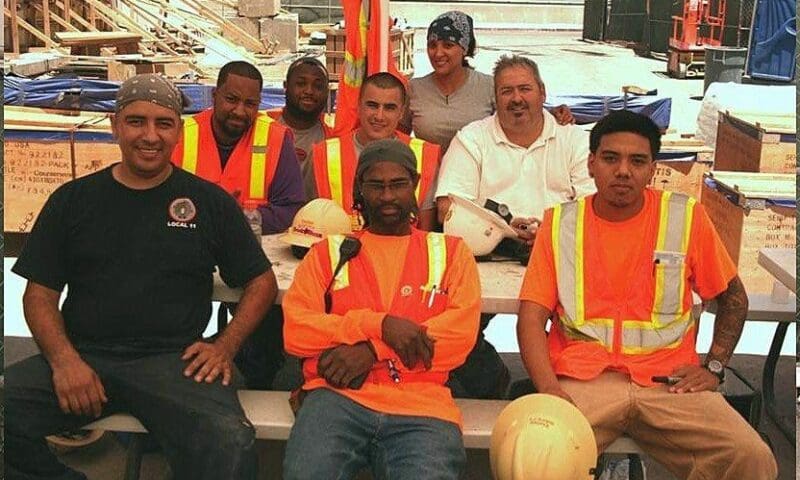

John Hariel has an electric personality – perfectly appropriate for a man who is helping to wire Los Angeles.
A general foreman with the International Brotherhood of Electrical Workers (IBEW) Local 11, Hariel – known to everyone as Big John – has spent the last two decades building L.A.’s infrastructure. He’s a natural leader blessed with an entrepreneurial mind, an activist heart and the body of a Mac truck.
Big John has deliberately reached out to women and men from disadvantaged communities, mentoring them to become strong leaders, parents and citizens. Frying Pan News recently got a chance to talk with members of his wonderfully eclectic electrician crew, all of whom are working on the Martin Luther King Jr. hospital renovation in Watts, which is covered by a project labor agreement and local hire agreement. The team included several women electricians and members from all ethnic backgrounds, reflecting the impressive diversity of L.A.’s construction workforce.

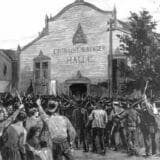
(This is the first in a three-part series about the misclassification of employees as independent contractors – a practice which affects millions of workers in the U.S., including most of the nation’s nearly 100,000 port truck drivers).
At the zenith of the Occupy movement, some commentators adopted the term “neo-feudalism” to describe the relationship between powerful corporations and the rest of society. Did this rhetoric have a basis? Yes and no. A portion of today’s workforce labors under conditions that resemble the dark era of the 19th century more than they do either the medieval or the modern one.
First, a little background. In the social and legal world of medieval England (which, for better or worse, begat our legal system), one’s employer was one’s master, landlord, and protector – and all these relationships were encased within the Church and the great chain of being.


On a day when the number of unemployed Americans ticked up to 8.3 percent, it’s worth checking out an ongoing project of Marketplace. The American Public Radio program has been inviting readers to contribute images and comments they believe capture the essence of what it means to be middle class.
“We spend a lot of time talking about the middle class,” says Marketplace. “What it is, who’s part of it, why it matters. Now it’s time for you to tell us.”
The photos range from retro black-and-whites to current digital snaps, and the contributors run the gamut from retirees to students, from the complacent to Occupiers. The contributors’ comments are often more poignant than the images. One young Virginian submitted a grim watercolor of a man carrying a sign reading, “Out of Confidence.” As the contributor explained:
“I do not consider myself middle class at the moment.
» Read more about: WebHot: Marketplace’s Middle Class Photo Project »


Hundreds of millions of tons of goods enter the United States every year through our nation’s busiest ports in Long Beach and Los Angeles. Containers are then trucked through the Los Angeles basin to the Inland Empire, San Bernardino and Riverside counties, where roughly 85,000 warehouse workers, mostly Latino, unpack and reload items onto trucks destined for retail outlets.
The explosion of “domestic outsourcing,” the aggressive practice of contracting warehousing, transportation and goods delivery to a complex hierarchy of contractors and subcontractors, has lowered the quality of jobs in Southern California and disproportionately impacted working Latinos here, many of whom move goods for Walmart and other giant retailers at these subcontracted warehouses.
That’s why Warehouse Workers United [has] launched a new Web series: “Voices/Voces from the Warehouse,” which features real workers in Walmart-contracted warehouses recounting their personal experiences and stories from the warehouse where they work.
In the first episode,
» Read more about: Warehouse Workers' Stories Heard in New Web Series »
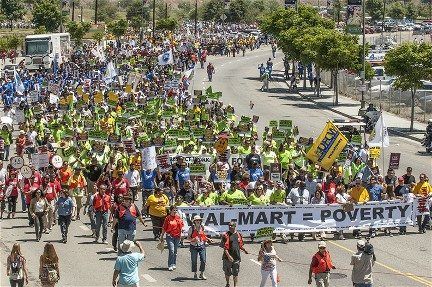

(The following post first appeared on Salon. Author Josh Eidelson discusses Girshriela Green, who was fired after speaking out against bad working conditions at Walmart during the massive June 30 march and rally held in L.A.’s Chinatown. The Los Angeles Alliance for a New Economy stands with OUR Walmart workers and actively encourages all members to call Walmart’s VP of Public Relations TODAY at 479-277-9350 to demand justice for Girshriela and her fellow workers and to reinstate her.)
As Wal-Mart celebrates its 50th anniversary this summer, it has faced a new wave of resistance from its “associates” — the company’s corporate-speak for employees. Last month, a delegation of Wal-Mart workers brought their grievances to the company’s shareholder meeting, including low wages and understaffing. In interviews yesterday, three workers at the forefront of the campaign told Salon the company has punished them for their activism. Critics say that the world’s largest private sector employer is playing dirty once again.
» Read more about: Walmart Retaliates Against Activist Workers »


In 2005, Hewlett-Packard paid Carly Fiorina $40-million if she promised not to come to work anymore. The absurd payoff followed the company’s stock plunge during Fiorina’s six-year tenure as CEO. That $40-million could have gone to staff, shareholders or new hires.
Since then, most Americans — for whom the phrase “retirement package” is a cruel joke — have watched their net worth collapse while CEO payouts have reached heights far beyond the reach of mortal men.
A study released earlier this year by GMI, a corporate-governance rating and research firm, found that the golden parachutes of just 21 CEOs collectively add up to nearly $4 billion. (That’s Carly’s massive kiss-off multiplied by 100.) You don’t want to know how rich every one of these guys — yes, they are all guys — was to begin with.
Former Penn State football coach Joe Paterno died in January after being fired for helping to cover up the systematic sexual abuse of kids under his watch.


In case you’ve missed it, the Cayman Islands have been in the news lately, and not just because it’s swimsuit season. Much of it has to do with a certain presidential candidate’s personal finances, and this, in turn, has provoked some journalistic spade work into the schematics of the “offshore economy.” In fact, just as American factories and jobs have increasingly emigrated to other countries, so have the piggy banks where some of our super-rich and/or presidential candidates place their money. Adam Davidson, of NPR’s Planet Money fame, ran a suitably scary piece in last Sunday’s New York Times Magazine in which he sketched how easy it is for just about anyone with a telephone and photo ID to set up an offshore account.
It’s a great read that begins with Davidson Googling the names of a few firms that are well versed in parking your earnings in tax-free,
» Read more about: WebHot: You Too Can Be an Offshore Tax Shirker »
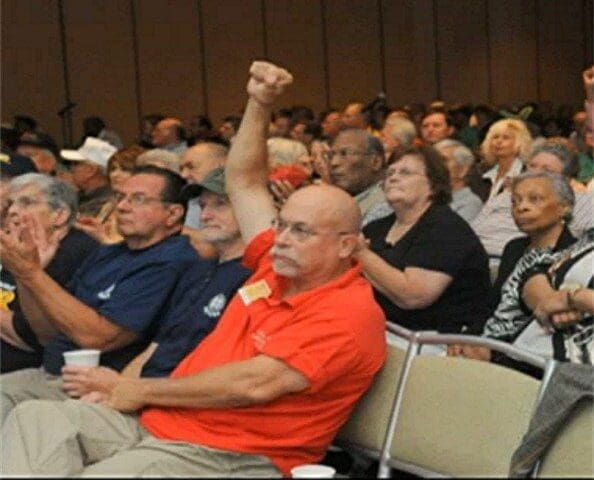
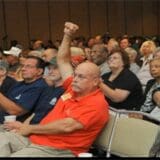
Social Security, Medicare and Medicaid are under attack by Republican lawmakers. Whether it is the Romney/Ryan budget that would end Medicare as we know it or proposals to privatize and cut Social Security, members of the Alliance for Retired Americans are pushing back and mobilizing with new “Let’s Not Be the Last Generation to Retire” campaign.
During the next few weeks to coincide with Medicare’s and Medicaid’s 47th anniversary July 30 and Social Security’s 77th on Aug. 14, Alliance members will sponsor educational briefings at senior centers and organize protests outside offices of lawmakers who have voted against the needs of local retirees. Says Alliance President Barbara Easterling:
Our goal is to educate seniors on the issues and on where elected officials and candidates stand. We need to clear up all the misinformation that is being spread by the big business groups and the right-wing commentators on TV.
» Read more about: Let’s Not Be the Last Generation to Retire »


(Note: The following feature first appeared at Unionosity, a new local blog devoted to coverage of labor issues; we repost it with permission.)
Negotiations between workers and the Waste Management company have reached an absolute standstill, with hundreds of trash and recycling workers striking and the sanitation giant refusing to negotiate with picketing workers.
Waste Management employees, represented by Teamsters Local 117, walked off the job last Wednesday after working without a contract since May 31. Waste Management is proposing a contract that pays recycling workers less than garbage haulers, despite the similarity between the jobs. Tellingly, Waste Management has historically taken an oppositional stance to organized labor, and seemed to be priming for a lock-out in June. After the contract expired, Waste Management held a job fair for replacement (scab) workers, and increased security at its Puget Sound headquarters. Alas, the replacement workers have not managed to keep up with the overflowing garbage and recycling heaps in Puget Sound.
» Read more about: Seattle Strike: Garbage In, No Garbage Out »


(Beginning tomorrow, August 1, health insurance companies will be required to cover women’s preventive care without extra charges. As other provisions of the Affordable Care Act (ACA) continue to unfold over the next few years, more women will gain further access to affordable preventive health care. Countdown to Coverage has been marking the days leading up to August 1 with posts about how ACA – often called “Obamacare” by its opponents — will benefit women, while pointedly rebranding the act “MamaCare.”
The following reposted feature was written by Rebecca Spence, of the American Pacific Islander American Health Forum, and Marissa Spalding, of Black Women’s Health Imperative.)
We love MamaCare! Thanks to the health care law, on August 1 all new health insurance plans will have to provide pregnant women with coverage for gestational diabetes screening without charging us expensive co-pays and deductibles.
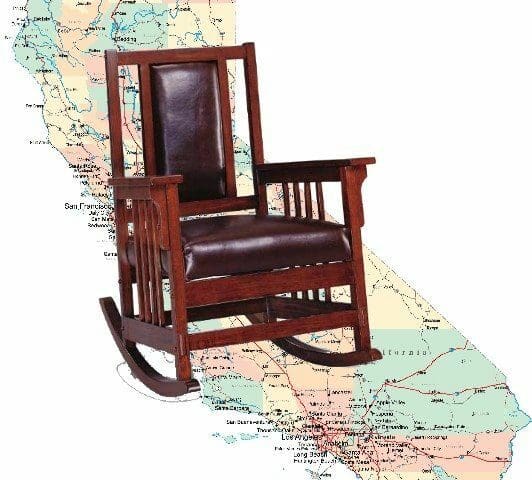
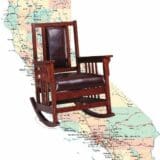
In the past decade the number of California workers with access to a retirement plan at work has plummeted. A recent study by The New School’s Schwartz Center for Economic Policy Analysis (SCEPA) shows that in 2009, 52.3 percent of California’s workers did not have access to an employer-provided retirement plan—representing a 6.5 percent rise over the previous decade in workers without pension access.
This increase poses a danger to the broader economy, which will suffer the destabilizing effects of mass retirement insecurity. Legislators can address this looming crisis with a fair, low-cost solution: opening existing, well-managed retirement systems to private sector employees.
SCEPA’s new statistics underscore the need for the California state legislature to once again take action on legislation based on my proposal. Titled The California Retirement Savings Act, the bill was introduced by State Senator Kevin DeLeon and passed the state senate in February.


As more American cities sink into the quicksand of bankruptcy, a veritable Scapegoats’ Olympics has been inaugurated – crowd-pleasing blame games that usually point fingers at workers. Harold Meyerson was having none of it the other day, however, in an L.A. Times op-ed:
“From reading the voluminous accounts of the fiscal woes of Stockton and San Bernardino, you’d think that municipal unions and feckless city officials are primarily what led these cities down the path to fiscal ruin.”
For evidence, Meyerson quotes editorials and columns appearing in the O.C. Register and Sacramento Bee, both of which confidently laid the blame on the pensions of unionized public employees. Of course, the unchallenged narrative among the chattering classes has been all about spineless city governments caving in to unions whose greedy members expect to enjoy a paid retirement when they’re too old to work.
» Read more about: WebHot: Don’t Blame Workers for Bankruptcies »
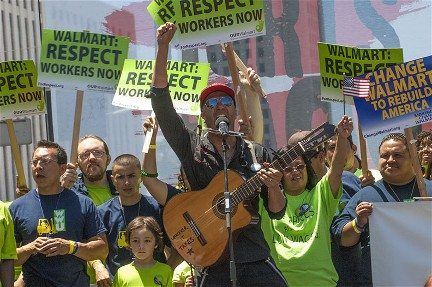

On June 30, I rode a bus from near the South Los Angeles site of Walmart to the Cornfield – the starting point for the largest rally ever held against the retail giant. It was on this bus packed with African American community activists that I came to fully understand why, as an African American pastor, I have for the last 10 years refused to shop at Walmart.
There has long been a debate in the community about whether low-income African Americans should shop at Walmart. Some people say that Walmart helps those who are struggling economically because they keep their prices low.
The truth is that Walmart is the leader at operating in its own best interest. And that interest – as we see with the enormous wealth of the Walton family – is to make as much money as possible.
There are several reasons why people who depend on the low prices and availability of Walmart should stop shopping there.
» Read more about: Walmart: Any Job Is Not Always a Good Job »
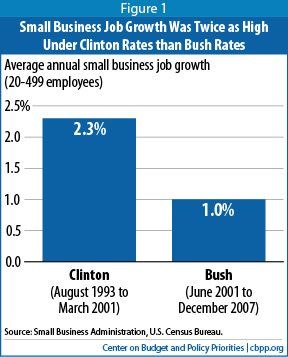
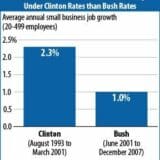
Republicans pride themselves of being the champions of small business owners. But it’s helpful to clarify what actually is their definition of a small business.
The Center on Budget and Policy Priorities (CBPP) released a report that shows only 2.5 percent of small business owners would be affected by allowing the Bush tax cuts to expire on the wealthiest taxpayers (top two marginal tax rates).
CBPP writes:
“The claims that allowing the Bush tax cuts for high-income people to expire would seriously harm small businesses rest on an exceedingly broad, and misleading, definition of ‘small business.’ The definition is so broad, in fact, that under it, both President Obama and Governor Romney would count as small business owners—as would 237 of the nation’s 400 wealthiest people.”
Did you catch that? The definition is so broad 237 of the nation’s 400 wealthiest people are considered small business owners.
» Read more about: Ending Bush Tax Cuts Would Affect Few Small Businesses »


You need a new pair of jeans. You’re standing in front of two stores, both offering excellent quality jeans. One store offers them for $35; these jeans are made offshore somewhere, and the retailer is based in a distant state. The other store offers a virtually identical pair for $38; these jeans are made right here in L.A., and the retailer is also based in L.A. What do you do?
Trick question — it doesn’t matter. You’re an individual consumer, overwhelmingly concerned with your own pocketbook.
But what if you’re the government, and you’re concerned not only with getting the best price, but also with trying to create jobs and generate more money for the local economy? Then it gets a bit trickier. Which is to say, we’re going to have to do some math here, folks: Just how much is that extra $3 getting us?
» Read more about: Government Procurement: Pennywise, Pound Foolish »
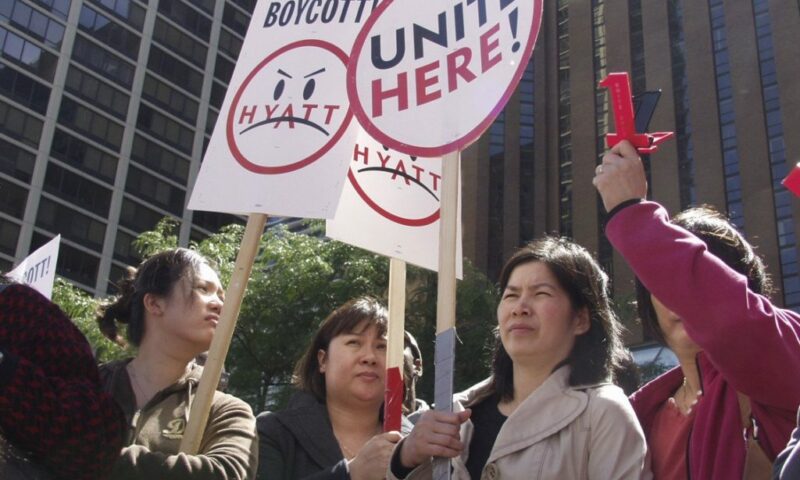

Today a global boycott of Hyatt Hotels was declared. As a server at the Hyatt Andaz in West Hollywood, not only do I personally condone it, but I also urge all my friends, family and online contacts to join me in voting Hyatt the worst hotel employer in America.
This is the first time in history that there has ever been a global boycott of a hotel chain, and I believe it is well deserved.
My personal journey to this decision started last September during our seven-day strike in front of the Andaz on Sunset Boulevard, where my coworkers and I were in a battle for decent wages and a fair tipping policy. A lot of us frankly were tired of working three or four different jobs while only getting paid for one.
I hadn’t yet heard of some of the stories from different Hyatt hotels across the country – like the one about Hyatt firing its entire housekeeping staff in Boston and replacing them with minimum-wage temp workers.
» Read more about: Hyatt Worker: Why I Support the Global Hyatt Boycott »


A day laborer falls off an unsafe scaffold and dies. A custodian gets work-related asthma from cleaning products. A painter is tested and found to have lead poisoning. Every year, thousands of California workers are injured on the job or become ill as a result of health hazards at work.
Twelve workers tragically lose their lives on the job each day in the United States, with 409 workplace deaths in California in 2009. Latino workers are particularly at risk. In Los Angeles County, where nearly one quarter of the state’s fatalities occur, Latino workers have a 50 percent higher fatality rate than non-Latino workers.
Work-related injuries and illnesses result in substantial human and economic costs, and can be prevented. Having the data necessary to understand the problem is the first step.
A health indicator is a numerical value or statistic that helps us measure the state of health in a community or group.
» Read more about: Tracking Occupational Health in California »


You don’t have to be a recent homeowner to know how precarious the housing market has been since the bubble popped in 2007. Consider this, for example: Today half of all San Bernardino County homeowners have to put on scuba gear to view their mortgages. Last week, however, just as that county toyed with the idea of seizing such homes through eminent domain, there was a bright spot. Governor Jerry Brown signed into law (to take effect January 1, 2013) the Homeowner Bill of Rights, a consolidation of several bills that had been strongly pushed by state Attorney General Kamala Harris.
The HBR offers several solid benefits to homeowners, but two stick out:
» Read more about: State Gives Struggling Homeowners a "Fighting Shot" »


The London Olympics starting in two weeks will be an enormous logistical and security challenge for the city. More than four million people are expected to visit London over the Olympic period and billions more will be watching; 4.7 billion people from around the globe watched at least some of the Beijing Olympics in 2008.
Under that kind of global spotlight, successful games will burnish the city’s glow and bring millions of new tourists for years to come. Failure, on the other hand, could tarnish the city’s reputation in the eyes of the world.
London is off to a bad start. The private global security giant, G4S, hired to guard the games failed to meet their hiring targets. The British government has stepped in and called up 3,500 troops to fill in. It’s yet another example of public contracting gone bad.
At first look,
» Read more about: Plan B From Outer Space: Olympics’ Privatization Fiasco »